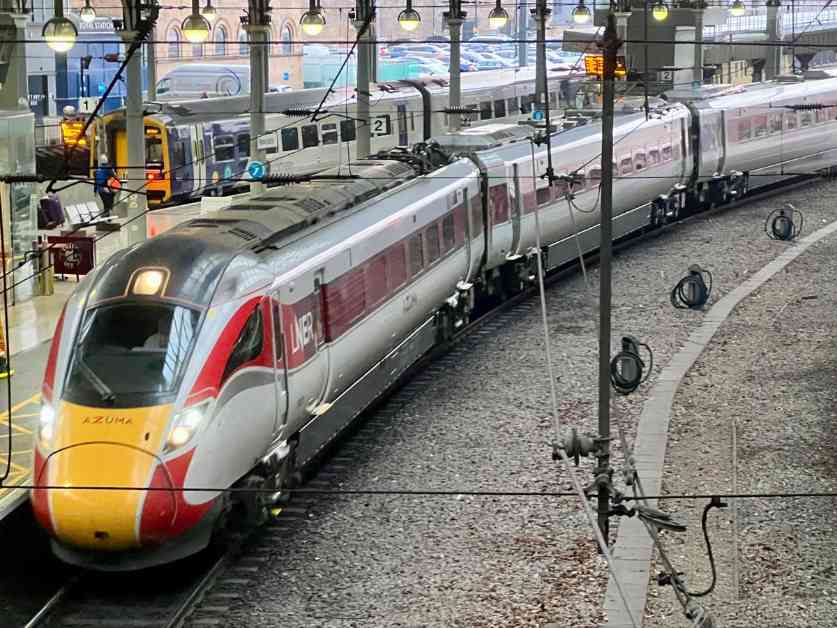Commuters across the UK are bracing themselves for more disruption as train strikes are set to resume within 48 hours. The drivers’ union Aslef has announced further walkouts following a government pay deal that has left many passengers frustrated and inconvenienced. This latest development comes after months of negotiations and disputes between the union, the government, and train operators, leaving many questioning the future of rail travel in the country.
The Impact of the Pay Deal
The government’s offer of a pay deal to Aslef was meant to bring an end to the ongoing train strikes that have plagued the East Coast Main Line operated by LNER. However, the announcement of the pay deal seems to have had the opposite effect, with Aslef now planning 22 days of strikes starting from August 31st to November 10th.
According to the union, the strikes are a response to alleged bullying by management and the persistent breaking of agreements by the company. This latest round of strikes is expected to cause further disruption to commuters who rely on the East Coast Main Line for their daily travel.
Political Reactions and Criticisms
The pay deal and subsequent strikes have sparked political reactions and criticisms from various parties. Former Conservative Party leader Sir Iain Duncan Smith criticized the government for being too lenient in the negotiations, stating that the unions will continue to demand more if their demands are met without consequences.
Tory leadership candidate James Cleverly accused the Labour government of being influenced by their union paymasters, leading to devastating strikes that will impact families who depend on train travel. The ongoing disputes between the government, Aslef, and LNER have raised concerns about the future of rail travel in the UK and the impact it will have on passengers and the economy.
The Future of Rail Travel
As the train strikes continue and negotiations between the government, Aslef, and LNER remain at a standstill, the future of rail travel in the UK remains uncertain. Passengers are left frustrated and inconvenienced by the ongoing disputes and disruptions to their daily commutes.
The government has called on both Aslef and LNER to come to the table and work towards a resolution that benefits all parties involved. However, with the union demanding more and the company failing to adhere to agreements, finding a solution that satisfies everyone seems increasingly challenging.
In the meantime, passengers are advised to seek alternative means of transportation or consider using open-access operators such as Lumo, Grand Central, and Hull Trains to avoid the brunt of the strikes. As the situation continues to unfold, it remains to be seen how the government, Aslef, and LNER will navigate the challenges ahead and find a resolution that benefits passengers and the rail industry as a whole.












